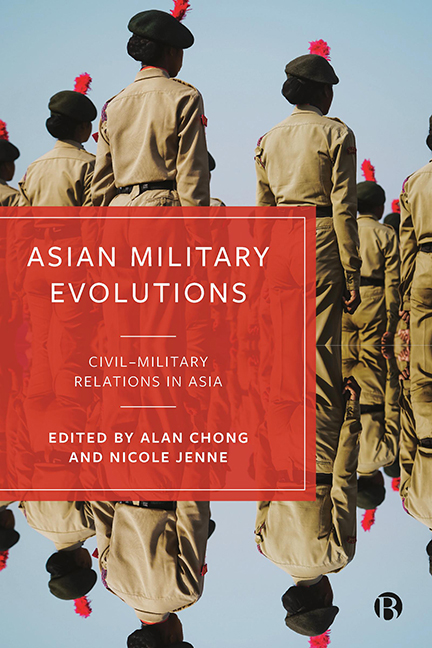Book contents
5 - Mind the Gap: The Curious Case of Everyday Civil–Military Relations in Singapore
Published online by Cambridge University Press: 18 January 2024
Summary
The SAF is arguably ‘the most impressive military force in contemporary Southeast Asia’ (Huxley, 2000, p 249). Yet, the threat of military intervention in Singapore’s political system, what Feaver (1999, p 214) terms the ‘civil–military problematique’ – wherein the ‘very institution created to protect the polity is given sufficient power to become a threat to the polity’ – is unlikely (Tan, 2011, p 148). Scholars have contended that Singapore’s civil–military relations transcend Feaver’s problematique. Four decades earlier, Chan (1985, p 136) already noted ‘the most striking feature of the Singapore scene is the undisputed predominance of the civilian sector over the military.’ We broadly agree with Tan (2001, p 276), who explains that such control is achieved through ‘civil–military fusion’ whereby ‘the military, both in leadership and in structural terms, functions as an integral part of a centralized, bureaucratic state’; and also with Chong and Chan (2016), who observed civilian society is arguably built in the likeness of a quintessential military force, with a seeming permeation of martial values. We, however, suggest an alternative for such integration. Rather than one world enfolding the other into a hyphenated whole, a ‘civilianized military’ or ‘militarized civilian’, we argue that the foundational cultural values of Singapore society and government, and its armed forces, are the same, precluding separate ‘civilian’ and ‘military’ worlds in the first place.
In Singapore’s history, such ontologically distinct worlds never existed to a significant extent, nor did Singapore’s development allow them to be created. Consequently, there is no civil–military gap – a key concern in civil–military relations scholarship – in Singapore, transcending the civil–military problematique. While the military naturally plays a different role, it does not occupy a different world. Singapore presents a curious case of how its military evolution has existed within the operational role of the SAF as opposed to a changing relationship between different worlds.
- Type
- Chapter
- Information
- Asian Military EvolutionsCivil-Military Relations in Asia, pp. 90 - 109Publisher: Bristol University PressPrint publication year: 2023



